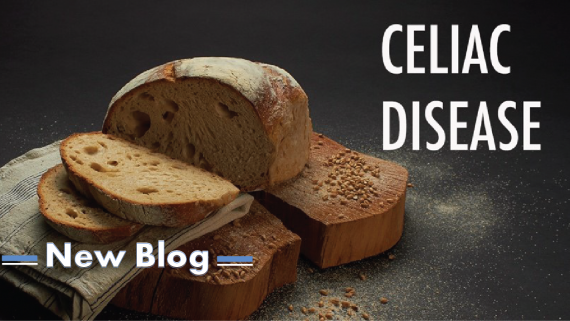Celiac disease is a condition where the immune system responds abnormally to gluten. It can cause damage to the lining of the small intestine. The actual cause of celiac disease is unclear, but it seems to be a combination of genetics and environment. Celiac disease can be painful and difficult to handle. You don’t have to deal with it alone. If you feel like your current treatment options are not working, a study option might be available to you if you qualify. You can find more information about the study currently enrolling here.
What is gluten?
The treatment for celiac disease is a strict and complete avoidance of gluten. Gluten is a protein particle found in wheat, barley, rye, related grains and wheat additives. Wheat additives are the most common additive in American food products and can hide in a lot of food products that we consume as a society. This makes it very important for those with celiac disease to read all food labels closely.
Foods containing gluten include:
• Flour
• Breads
• Crackers
• Muffins
• Pasta
• Cereals
• Baking mixes
• Sauces, spices, condiments and salad dressings
• Some medications and vitamin supplements
Gluten-free foods include:
• Rice
• Corn
• Potatoes
• Quinoa, millet, buckwheat and soybeans
• Milk, cheese and other dairy products
• Fruits and vegetables
• Meat and eggs
Common Symptoms of Celiac
• Abdominal pain
• Bloating
• Diarrhea or constipation
• Fatigue
• Weight loss (or failure to thrive in children)
Statistics
Based on the chart below, approximately 17 percent of people are misdiagnosed or undiagnosed. Celiac patients may also be asymptomatic, which means that they may have no obvious symptoms of celiac disease. This is why is it important to consult with your primary care provider first if you feel that you are experiencing the symptoms surrounding celiac disease.



